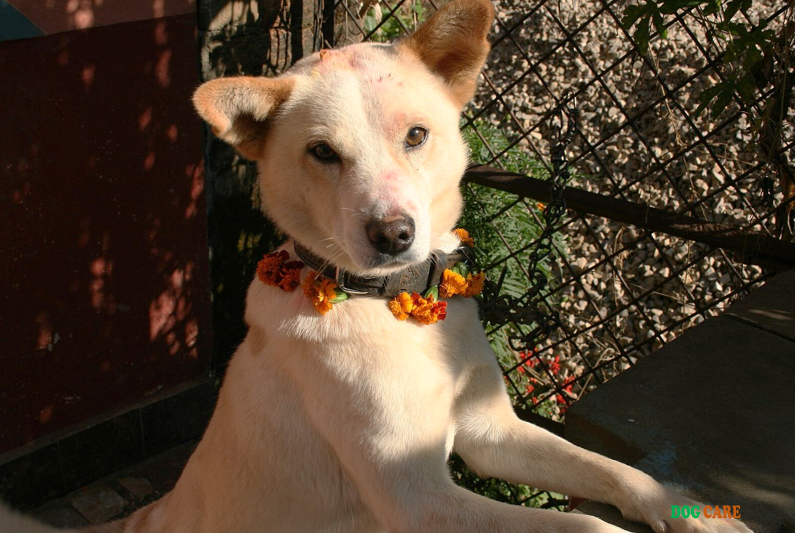Do Dogs Know They are Loved – Yes, dogs are intuitive beings and have the ability to sense and feel love from their human companions. Dogs, as intuitive creatures, possess the remarkable ability to perceive and experience love from their human counterparts.
With their heightened senses, dogs are able to pick up on our emotions, body language, and the way we treat them, allowing them to understand and feel the love that we provide. This deep connection and bond between dogs and humans is often referred to as the unconditional love that dogs show us, but they are equally capable of recognizing and reciprocating the love they receive.
We will explore how dogs perceive love and the signs that indicate their own feelings of being loved. So, let’s dive into the fascinating world of canine emotions and their understanding of love.

Canine Emotional Intelligence
Canine emotional intelligence allows dogs to perceive and reciprocate love, forming strong bonds with their owners. Through their understanding of human emotions, dogs instinctively recognize and cherish the love they receive.
Dogs have long been considered man’s best friend, known for their loyalty, companionship, and ability to understand their human counterparts. While it may seem like dogs can sense our emotions, do they truly understand their own feelings? This is where the concept of canine emotional intelligence comes into play. As pet owners, it is only natural to wonder if our furry friends comprehend the love and affection we shower upon them. Let’s explore the fascinating world of canine emotional intelligence to uncover the truth.
Research On Emotional Intelligence In Dogs
Recent research has shed light on the emotional intelligence of dogs, proving that they too have the capacity for complex feelings. Studies have shown that dogs possess similar brain structures to humans that are responsible for processing emotions. For example, research conducted by Dr. Gregory Berns at Emory University found that dogs have a region in their brain known as the caudate nucleus, which is associated with the experience of positive emotions like love and pleasure. This suggests that dogs are more emotionally in tune than we may have previously thought.
Furthermore, researchers have conducted experiments that demonstrate a dog’s ability to understand and respond to human emotions. In one study, dogs were shown images of human faces expressing different emotions, such as happiness, sadness, fear, and anger. The researchers found that the dogs were able to accurately identify the emotions being portrayed, showcasing their ability to recognize and interpret human emotional cues.
Understanding And Recognizing Emotions In Others
Just as dogs can recognize human emotions, they also demonstrate a remarkable ability to understand and recognize emotions in their fellow canines. Through a combination of body language, vocalizations, and scent cues, dogs are able to pick up on subtle changes in another dog’s emotional state. This allows them to respond appropriately, whether it be offering comfort and reassurance or alerting to potential danger.
As pet owners, it is crucial for us to understand and acknowledge the emotional intelligence of our dogs. By recognizing and respecting their emotions, we can provide them with a nurturing and loving environment that promotes their overall well-being. Additionally, understanding that dogs possess emotional intelligence can deepen the bond we share with them, as it allows us to better communicate and connect on an emotional level.
In conclusion, the concept of canine emotional intelligence is not just a figment of our imagination. Dogs are capable of experiencing and understanding emotions, both in themselves and in others. Their innate ability to recognize and respond to human and canine emotions is a testament to the deep bond they share with us as their companions. So the next time you express your love to your furry friend, rest assured they do know they are loved.
Indicators Of Love And Affection
Love and affection can be seen in dogs through their wagging tails, excited jumps, and playful nudges. They may not understand the concept of love, but their actions undoubtedly show that they feel loved by their owners.
When it comes to our beloved furry friends, it’s only natural to wonder if they truly understand the depth of our love for them. Do dogs know they are loved? The answer is a resounding yes! Dogs have an uncanny ability to recognize and reciprocate love and affection. So how can we tell if our canine companions feel the love we have for them? Let’s explore the signs that dogs display when they feel loved:
Signs That Dogs Display When They Feel Loved
| Sign | Description |
|---|---|
| Bright Eyes | Dogs with bright, sparkly eyes are often a clear indicator of their happiness and contentment. If their eyes are dull or lackluster, it may be a sign that they are not feeling loved or cared for. |
| Wagging Tail | The famous tail wag is a classic sign of joy and affection in dogs. A vigorously wagging tail shows that your dog is happy and feels loved. |
| Desire for Physical Contact | If your dog leans against you, sits on your lap, or enjoys snuggling up with you, it is a sure sign that they feel loved and secure in your presence. |
| Playfulness | A dog that feels loved will often exhibit a playful nature. They may bring you toys, initiate games, or happily join in when you play with them. |
| Relaxed Body Language | When a dog feels loved, they are more likely to have a relaxed body posture. Their muscles won’t be tense, and their tail won’t be tucked between their legs. Instead, they will have a loose, wiggly, and happy demeanor. |
The Role Of Oxytocin In Bonding
Just like humans, dogs experience the release of the “cuddle hormone” known as oxytocin. This hormone plays a crucial role in the bonding process between dogs and their human companions. When we show affection to our dogs through petting, gentle touches, or cuddling, it triggers the release of oxytocin in both our bodies. This chemical bond fosters trust, love, and deepens the emotional connection between dogs and humans. So, not only do dogs feel loved, but they also have physiological responses that strengthen the bond with their human families.
In conclusion, dogs undoubtedly know they are loved. Their remarkable ability to sense and reciprocate affection is evident in the signs they display. From bright eyes to wagging tails and a desire for physical contact, dogs show us in various ways that they feel our love. Furthermore, the release of oxytocin further solidifies the emotional connection between dogs and their human companions. So, remember to shower your furry friends with love and affection, as they truly understand and cherish these gestures.
Grasping The Concept Of Love
Dogs have an intuitive understanding of love, even if they can’t express it verbally. Their actions, loyalty, and affectionate nature are clear signs that they comprehend and appreciate the love they receive from their human companions.
The Cognitive Abilities Of Dogs
Dogs are known for their remarkable cognitive abilities. They have an impressive problem-solving skills, memory capacity, and emotional intelligence. While they might not possess the same cognitive abilities as humans, dogs have the capability to understand love and form strong emotional connections with their human counterparts.
Do Dogs Have A Sense Of Self And Understand Love?
It is a common belief that dogs lack a sense of self-awareness and therefore cannot understand the concept of love. However, numerous studies and observations suggest otherwise. Dogs exhibit various behaviors that indicate their understanding and experience of love. Let’s delve deeper into these intriguing aspects. Dogs have a remarkably keen sense of smell, allowing them to detect subtle changes in our body chemistry.
When we experience feelings of love and affection towards them, our bodies release oxytocin, often referred to as the “love hormone.” Dogs have the ability to sense this chemical change and associate it with positive emotions, deepening the bond they share with their owners. Furthermore, dogs are highly attuned to human body language and facial expressions. They can pick up on our emotions, and when we express love towards them through gentle touch, kind words, or a reassuring tone of voice, they respond with tail wagging, ear perking, and an overall display of contentment.
This suggests that dogs are not only capable of understanding love but also acknowledge and reciprocate it. While dogs may not comprehend the complex conceptual framework of love as humans do, they undoubtedly feel and reciprocate the positive emotions associated with it. They have an instinctive ability to recognize love and respond with unwavering loyalty, companionship, and affection. In conclusion, dogs have a remarkable capacity to grasp the concept of love.
Through their heightened sense of smell, attentiveness to our emotions, and the ability to form deep emotional connections, dogs undoubtedly know when they are loved. The bond between humans and dogs is truly special and goes beyond mere companionship. It is a unique connection based on mutual love and understanding.
The Impact Of Human-canine Interaction
Human-canine interaction plays a significant role in the emotional well-being of dogs. They may not explicitly know they are loved, but through affection, care, and positive reinforcement, they can sense and reciprocate the love and bond they share with their human companions.
How Human Actions Influence Dog Emotions
Human-canine interaction goes beyond verbal communication and has a profound impact on dogs’ emotions and well-being. Dogs are highly perceptive creatures, capable of recognizing and responding to human actions and behaviors. The way we treat and interact with our furry companions directly influences their emotional state and overall happiness. Understanding how our actions affect their emotions is crucial for building a strong bond and fulfilling relationship with our dogs.
The Importance Of Positive Reinforcement And Affection
Positive reinforcement and affection play key roles in shaping a dog’s behavior and emotions. Dogs thrive on love, attention, and praise from their human companions. By using positive reinforcement techniques, such as rewards and treats, we can encourage desirable behavior and reinforce a sense of love and approval in our dogs. This helps them associate good behavior with positive emotions, fostering a deeper sense of trust and security within the human-canine relationship.
Affectionate gestures, such as gentle petting, belly rubs, and cuddling, also contribute to a dog’s emotional well-being. Physical touch triggers the release of feel-good hormones like oxytocin, promoting a sense of relaxation and bonding between dogs and humans. Regular displays of affection help dogs feel loved and cherished, further strengthening their trust and attachment to their human companions.
It’s important to note that positive reinforcement and affection should be tailored to each individual dog’s needs and preferences. Some dogs may respond better to verbal praise, while others may thrive on physical touch. Understanding our dog’s unique preferences allows us to effectively communicate our love and support, ultimately fostering a deep and meaningful connection.
Frequently Asked Questions On Do Dogs Know They Are Loved
Faq 1: Do Dogs Understand When They Are Loved?
Dogs have an incredible ability to sense and feel emotions, including love, through our actions, tone of voice, and body language.
Faq 2: Can Dogs Reciprocate The Feeling Of Love?
While dogs may not understand the concept of love in the same way humans do, they can definitely show affection and bond with their owners.
Faq 3: How Do Dogs Express Their Love Towards Humans?
Dogs express love through various ways like wagging their tails, leaning on their owners, licking, or even cuddling up with them.
Faq 4: Can Dogs Feel Rejected If They Are Not Shown Love?
Yes, dogs can feel rejected and lonely if they don’t receive love and attention from their owners, which can adversely affect their well-being.
Faq 5: Is It Important To Show Love And Affection To Dogs?
Showing love and affection to dogs is crucial for building a strong bond, boosting their overall happiness, and creating a nurturing environment for them to thrive in.
Conclusion
Dogs are incredible creatures that have a remarkable ability to sense and reciprocate love. Through their behaviors and expressions, it is evident that they understand the affection showered upon them. Their wagging tails, joyful jumps, and sloppy kisses are testaments to the fact that dogs know they are loved.
As pet owners, it is heartwarming to know that our furry friends can feel and appreciate the love we give them. So, continue to cherish and adore your dog, for the love you share is truly understood and treasured by them.


